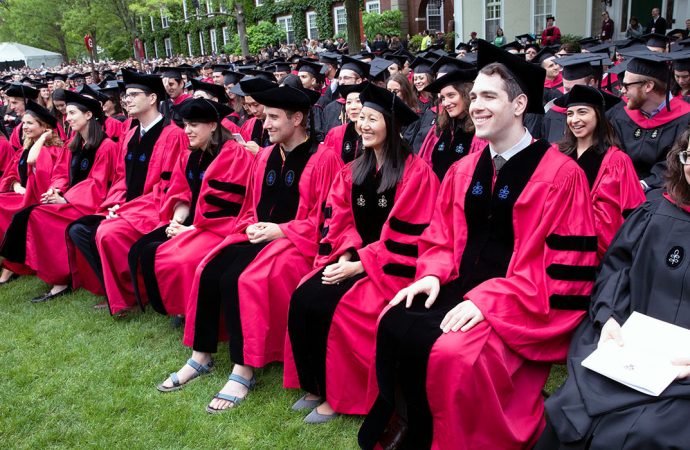Introduction In an era marked by economic fluctuations, industries across sectors face unique challenges in recruiting top-tier talent, especially from prestigious academic institutions like Harvard Business School. As the global economy experiences periods of slowdown, the competition for exceptional MBA graduates intensifies. Understanding the strategies and nuances involved in attracting this coveted talent amidst a
Introduction
In an era marked by economic fluctuations, industries across sectors face unique challenges in recruiting top-tier talent, especially from prestigious academic institutions like Harvard Business School. As the global economy experiences periods of slowdown, the competition for exceptional MBA graduates intensifies. Understanding the strategies and nuances involved in attracting this coveted talent amidst a downturn is paramount for sustained organizational growth and innovation.
Industry Landscape Amid Economic Slowdown
Technology Sector
Amid a slowdown, the technology industry encounters a shifting landscape. Once a beacon for Harvard MBA graduates due to its innovation-driven culture and promising opportunities, it now faces talent recruitment hurdles. As the sector matures and navigates regulatory challenges, luring top-tier talent becomes more complex. Companies need to emphasize long-term vision, a commitment to innovation, and a conducive work environment to remain appealing.
Finance and Consulting
Historically, finance and consulting firms have been a magnet for MBA graduates. However, during economic downturns, these sectors face substantial disruptions. Financial institutions grapple with market volatility, regulatory changes, and shifting consumer behaviors. Consulting firms, while still attractive due to diverse project exposure, need to adapt their recruitment strategies by offering specialized training programs and emphasizing stability and career growth.
Healthcare and Biotech
In contrast, healthcare and biotech sectors often gain traction during economic slowdowns. The demand for innovation and healthcare solutions remains resilient. Harvard MBA graduates seeking purpose-driven careers increasingly explore opportunities in these fields. Companies within this sector must emphasize their societal impact, research-driven culture, and growth potential to appeal to MBA talent.

Image By:https://www.hbs.edu
Strategies to Recruit Harvard MBA Talent Amid Slowdown
Flexible Work Models
Offering flexible work arrangements, remote work options, and work-life balance initiatives can entice MBA graduates seeking a supportive and adaptable workplace culture. Highlighting these benefits showcases a company’s commitment to employee well-being and can differentiate it in a competitive talent market.
Emphasis on Impact and Innovation
Organizations must articulate a compelling vision and demonstrate a commitment to innovation and societal impact. Promoting projects that align with candidates’ career aspirations, offering opportunities for leadership roles, and showcasing a clear career trajectory can attract MBA graduates seeking meaningful contributions.
Targeted Networking and Branding
Building a strong presence on Harvard Business School’s campus through targeted networking events, information sessions, and alumni engagement can significantly enhance a company’s brand visibility. Maintaining relationships with alumni and engaging with student clubs and organizations fosters a pipeline for talent acquisition.
Tailored Training and Development
Crafting specialized training programs tailored to MBA graduates’ skill development needs enhances the attractiveness of an organization. Providing mentorship opportunities, continuous learning initiatives, and exposure to cutting-edge technologies or industry trends can be a decisive factor in talent recruitment.
Competitive Compensation and Benefits
While intrinsic factors like organizational culture and growth opportunities matter, competitive compensation packages remain crucial. Offering attractive salaries, performance-based incentives, comprehensive benefits, and stock options can sway candidates considering multiple offers.

Image By:https://www.hbs.edu
Conclusion
In navigating the complexities of recruiting Harvard MBA talent during economic slowdowns, industries must adapt their strategies to align with evolving candidate preferences and industry landscapes. Emphasizing a forward-thinking approach, fostering an inclusive and innovative culture, and showcasing opportunities for impactful contributions can differentiate organizations and attract top-tier talent, ensuring sustained growth and success even amidst challenging economic times.





















Leave a Comment
Your email address will not be published. Required fields are marked with *